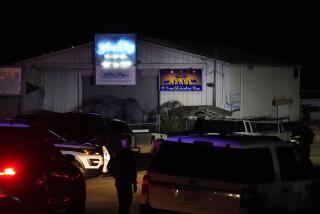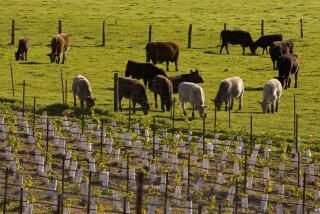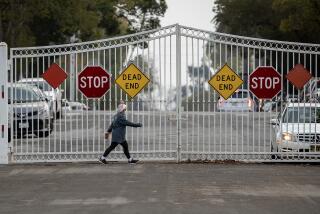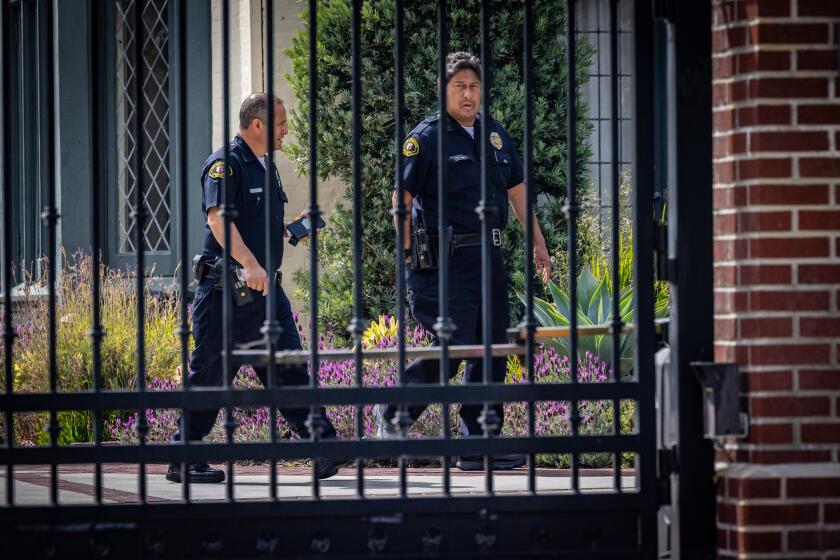Latest battle over South Central Farm ends — this time not with arrests, but a vote
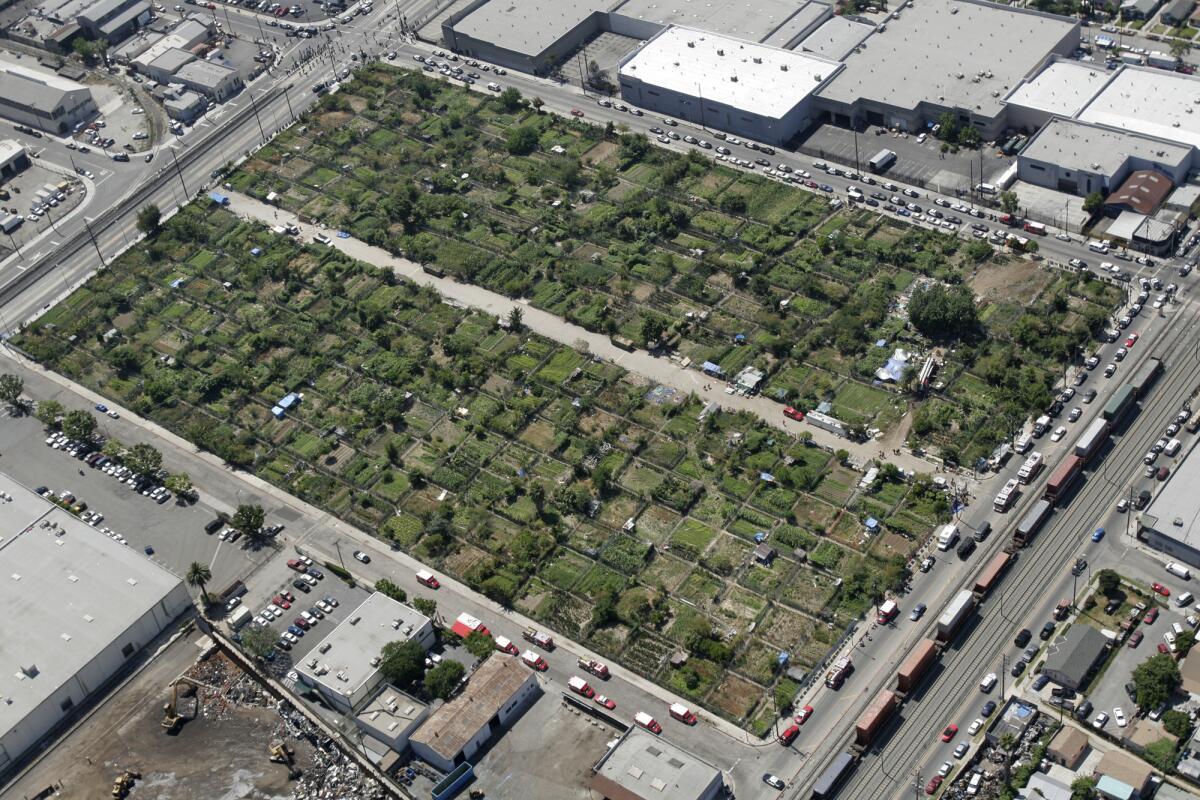
The showdown over the South Central Farm went on for hours: Dozens of protesters were arrested by deputies who pried activists loose from concrete drums using power tools, bulldozed vegetable gardens and rolled in a ladder truck to pluck actress Daryl Hannah and other protesters out of the branches of a walnut tree.
That was more than a dozen years ago, when farmers and activists were evicted from a South Los Angeles plot that had become one of the biggest urban farms in the country.
For the record:
2:50 p.m. July 2, 2019In an earlier version of this article, Daryl Hannah’s first name was misspelled as Darryl.
Their latest battle ended much more quietly in the marble chambers of City Hall, with a 12-0 vote Tuesday by the Los Angeles City Council. The decision paves the way for warehouses and offices to be built on the Alameda Street site, dealing another blow to activists’ hopes of reinstating their beloved farm.
The farm “gave people hope,” said Alberto Tlatoa, an organizer with the South Central Farm Restoration Committee. “It gave people an opportunity to be self-sufficient and grow their own produce. … We were talking about food justice in the early ‘90s when no one was talking about this.“
Farmers and activists had hoped that a court ruling would give them a new chance to stop the warehouse plan: Last year, a Los Angeles County Superior Court judge ruled that the city needed to do more analysis on how the planned development would affect traffic after urban farmers sued under the California Environmental Quality Act.
But the City Council on Tuesday simply approved a revised version of the environmental review to stay in line with the court ruling and allow the industrial project to move forward. Backers say it will bring jobs and investment to a stretch of South Los Angeles in dire need of economic development.
“Fourteen acres of gardening is not going to generate the kind of wages that we need,” said Noreen McClendon, executive director of the nonprofit Concerned Citizens of South Central Los Angeles. “Where’s the upward mobility from that? Where’s the growth opportunity? Where can I go from being a farmer?”
Other possible uses for the site are “not germane to the matter at hand,” attorney Francis Park, who represents the property owner, said at a City Hall hearing last week.
“The applicant has been patiently waiting for seven years to move this project forward,” Park said. “There is no substantive reason to further delay this amazing project.”
Attorney Mitchell Tsai, who represents the farmers, said Tuesday’s decision does not necessarily end the war over the former farm. Farming activists could file a new lawsuit, Tsai said, or take other steps to continue their fight against the project in the next few months.
Tlatoa said that even if they do not keep pursuing the Alameda Street site, he is not giving up on an urban farm in South L.A.
Although finding another plot of that size might be hard, Tlatoa said, farm organizers “are interested in helping transform any available space for urban agriculture.”
Tuesday’s vote is the latest turn in the lengthy saga over the South Los Angeles site. Decades ago, the city obtained the land through eminent domain to build a trash incinerator, but scrapped the plan in the face of community opposition.
Residents started using the land to grow their own fruits and vegetables. But when the Alameda Street site ended up back in the hands of its former owner, he refused to sell it to the farmers after a bitter fight that climaxed with protests and arrests.
For years after the farmers were evicted, the land sat empty. Plans to build a Forever 21 warehouse and distribution center stalled. The site was eventually sold to PIMA Alameda Partners, which got city approval two years ago for an industrial park for garment manufacturing. Then the farmers sued to try to stop those plans.
Councilman Curren Price, who represents the surrounding area, was absent for Tuesday’s vote and stepped out of a committee meeting on the plan last week.
A Price spokeswoman did not respond to repeated inquiries about whether the councilman was required to recuse himself on the decision and why. A spokesman for the city attorney said earlier this week that he had no information about why Price left the committee hearing.
Twitter: @AlpertReyes
More to Read
Start your day right
Sign up for Essential California for news, features and recommendations from the L.A. Times and beyond in your inbox six days a week.
You may occasionally receive promotional content from the Los Angeles Times.
